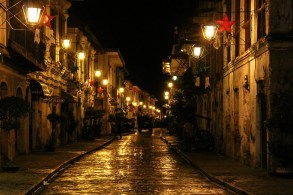“Do not judge others, so that God will not judge you, for God will judge you in the same way you judge others, and He will apply to you the same rules you apply to others”.
Matthew 7:1-2 GNT

As I rounded the corner while on my morning walk in the neighborhood, a car came barreling out of its driveway like a crazy person. Another car had just turned onto the street, saw the car, and stopped, patiently waiting for the speedy car to go on its way. My first thoughts were, “How rude! Man, they need to slow down before someone gets hurt! Some people care about nothing but themselves driving like that in this subdivision!”
The rushing car, with dark tinted windows, sped down the street and was gone. It all happened so fast; I couldn’t tell you who was in the car, how many were in the car, what they looked like, nothing. All I know is that I heaped lots of judgmental and critical thoughts upon them for a few seconds.
The waiting car proceeded on its way, and suddenly I felt the prick of the Holy Spirit in my heart. The driver had chosen to be kind and thoughtful to the rushing individual. No obscene gestures or look of disgust were made as they slowly drove by me. In fact, they had exhibited the loving character of Christ in their actions.
I felt ashamed of my critical feelings. What did I know about the scenario? Absolutely nothing. The person in a hurry may have overslept and was running late for work. Maybe someone was ill and needed medical attention. What if there had just been a heated argument, or worse yet, abuse of some kind, and the driver needed to flee? What if they were just being careless and thoughtless? Either way, it was not my place to judge. It was my place to show the love of Jesus without condemnation. I had failed.
As I continued my pace, all kind of thoughts filled my head. How would I have wanted others to treat me if I had been the hasty driver? What good had it done me to make assumptions and judgments that were unjustified? Why did I have those opinions in the first place?
The rest of my walk consisted of humble confession and quiet contemplation of my actions. I had learned a valuable lesson about not judging. What an amazing God we serve who loves us unconditionally, knows our hearts better than we know it ourselves, and is quick to forgive and cleanse us from all unrighteousness. He alone is the great Judge and transformer of our hearts and minds. [Digging deeper – Matthew 7:1-5, 12; Romans 2:1-3, 12:21, 14:10-13; 1 Peter 2:23]
Walking free of judgment,
Beverly <><
Photo Credit: free public domain photo



